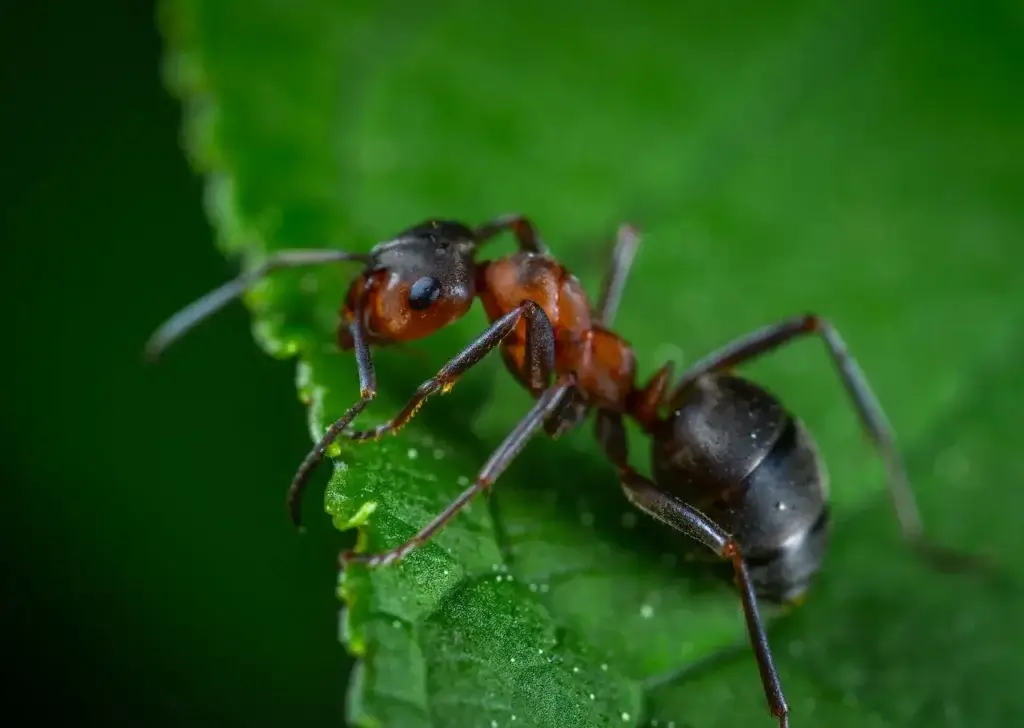
Do Ants Hibernate? Debunking Myths and Discovering Facts
As the temperature drops and days get shorter, many animals—and even some people!—find themselves ready to turn in for the season, bundling up and getting themselves ready for an annual hibernation. This poses the question, do ants hibernate? Some of these animals' hibernation habits are so well known that we use their reemergence to guess how much longer winter might last, but did you know that insects are just as likely to take part in this yearly period of R&R?
Along with yellowjackets, some mosquitoes, and beetles, many species of ants choose to hide away each winter, remaining dormant until the warmer weather signals to them that it’s time to come back out. The answer to the question, “Do ants hibernate”, though, is a bit more complicated than it first appears.

Table of Contents
Do Ants Hibernate?
Ants are remarkable creatures, known for their social organization and remarkable ability to adapt to various environments. Unlike mammals' version of hibernation, ants don't enter a prolonged state of dormancy during the winter—but they do employ several strategies to ensure their colony's survival through the colder months.
Slowing Down Activity
As temperatures drop, ants tend to slow down their activity levels. They become less active and reduce their foraging expeditions. This decrease in movement helps conserve energy and resources. In the coldest periods of winter, ants may even appear almost dormant.
Staying Underground
Ants are known for constructing intricate underground nests. These nests provide insulation and help maintain a more stable temperature compared to the external environment. By staying underground, ants can protect themselves from extreme cold and frost.
Huddling Together
Some ant species will cluster together to form a huddle or ball within the nest. This behavior is designed to generate and retain heat. By huddling together, ants can maintain a higher temperature than they would individually, helping them survive the winter.
Decreased Reproduction
During the winter, ants usually reduce their reproductive activity. Queens, who are responsible for laying eggs, will often stop or significantly decrease their egg-laying. This conserves valuable resources for the survival of the colony as a whole.
Consuming Stored Food
Ants are diligent food gatherers, and they store excess food in their nests. During the winter months, when foraging is less productive, ants rely on these stored resources to sustain themselves. This food cache can include seeds, other insects, and even nectar collected during the warmer months.
Specialized Antifreeze Proteins
Some ant species produce antifreeze proteins that allow them to survive in sub-freezing temperatures. These proteins prevent the formation of ice crystals within the ants' bodies, thereby protecting their vital organs.
So, do ants hibernate in the winter? Kind of. While ants don't hibernate in the traditional sense, they do exhibit behaviors and adaptations that help them survive the winter.
Do Ants Hibernate Everywhere?
It's important to note that the specific strategies employed by ants can vary depending on the species, location, and environmental conditions. In warmer regions, some ant species may remain active year-round, while those in colder climates are more likely to exhibit these winter survival behaviors.
The decision of whether or not ants hibernate is closely tied to temperature and environmental factors. While some ants hibernate in colder regions, others in warmer climates like Florida may not exhibit the same hibernation behaviors. Let's delve deeper into how and why temperature affects ants' hibernation patterns.
Temperature and Hibernation
Ants, like many insects, are ectothermic creatures, meaning their internal body temperature is regulated by the external environment. They become less active as temperatures drop because their bodily functions slow down. When it gets too cold, their metabolic processes become sluggish, and this can make foraging and other activities difficult. In response to these temperature changes, ants employ various strategies to cope with winter conditions.
Warmer Climates and Year-Round Activity
In regions with milder winters, such as Florida, the ambient temperatures do not drop to the extremes experienced in colder areas. As a result, ants in warmer climates can continue their activity throughout the year. With a lack of prolonged cold spells, there is no urgent need for these ants to hibernate or enter a state of dormancy.
Overwintering in Colder Regions
Conversely, in colder regions where winters are harsh and temperatures drop significantly, ants face a different set of challenges. Hibernation, or similar behaviors like dormancy, becomes essential for survival. In these areas, ants need to conserve energy and avoid the risks associated with the freezing temperatures outside.
In North Carolina, though, temperatures in winter are often in the range that triggers ants to hide away for a few months.
Final Word: Do Ants Hibernate?
Ants may not hibernate like many other animals, but their ability to adapt and survive in various environments is a testament to the resilience and resourcefulness of these tiny insects. If you catch a colony of these persistent pests trying to burrow into your home to escape the cold, it may mean it’s time to give pest control experts a call.
At A-1 Pest Control, our ant exterminators have been keeping North Carolina homes pest-free every season for decades. For more information on our specialized pest control plans, or to establish service for your North Carolina home, give us a call today at 828-481-9140. You can also schedule your free pest inspection online at no cost!
